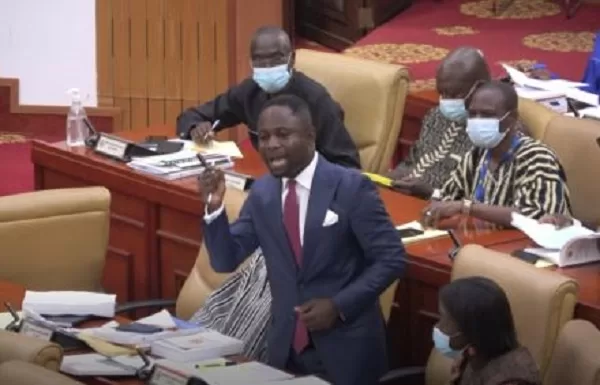Kwabena Mintah Akandoh, Ranking Member on Parliament’s Health Committee, has said the increment in fees charged for dialysis treatment at the Korle-Bu Teaching Hospital (KBTH) was not approved by Parliament.
Authorities have disclosed, following the increment in the fees that the new rate was approved by the House.
However, the Juaboso Member of Parliament says they rather asked that the regents for dialysis be exempted from taxes.
His comments follow an increment in the fee for treating dialysis from GHC380 to GHC491 which was implemented Sunday, May 12, 2024, according to President of the Renal Patients’ Association, Baffour Ahenkorah.
According to Mr. Ahenkorah who spoke with Alfred Ocansey on Ghana Tonight on TV3 Tuesday, May 14, 2023, some of their colleagues who attended the facility for treatment had to return home because they could not bear the fees.
Speaking with Accra-based Citi FM Tuesday, Mr. Akandoh reemphasised that the new fee being charged by the KBTH was not sanctioned by Parliament.
He noted Parliament was going to ensure the new fees are reversed as soon as possible.
“We never agreed at the committee level that the cost of dialysis must be increased. What happened was that the Ministry of Finance must waive all taxes on the [regent] of dialysis. So, it came to me as a shock when all the media houses were calling to tell me that fees had been increased. I don’t get it.
“Then, when you talk about that they make it sound as though Parliament that has done some proposal and has gone ahead to approve it,” he said.
According to statistics, nearly 1,300 Ghanaians are on dialysis, and a renal patient requires about 12 sessions of dialysis a month. With the cost of GH₵380 per dialysis increased to GHS491, a patient will need nearly GHS6,000 a month for the full session.
GH¢2 million to be disbursed Parliament for dialysis treatment of the needy – NHIA boss












